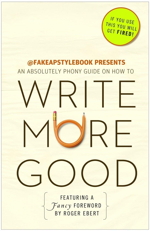“Save vs. hemorrhaged eye.”
Let’s get a few more questions answered here, before I go under the knife and I’m away for the week:
Cassandra Miller foresees
“Who’s right about the Lucky Dime, Magica or Scrooge?”
Ooh, a good question. The Lucky Dime AKA the Number One Dime is, of course, the first dime Uncle Scrooge ever earned, which Magica De Spell believes has imbued it with some mystical essence she could exploit for her own nefarious purposes. As I recall, Scrooge’s own belief in its “magic” comes and goes depending on the story, but in general it’s a highly personal symbol of the wealth that followed.
Given that the main “canon” of Scrooge, as presented by Carl Barks, tends to generally hew towards the “real” mundane world and away from more fanciful explanations, I would say that Scrooge is more correct, more or less. It’s true that “magic” and “luck” and other weirdo stuff exists in the Duckiverse, and there are times when Scrooge is parted from his Lucky Dime and suddenly everything just goes to hell for him, but I would say Scrooge’s fortune arose without any supernatural advantage from ownership of that dime. It simply served as an inspiration for Scrooge, and any of his difficulties that arose from losing said dime were likely psychological in nature, losing an old crutch he depended on to support his financial endeavors.
I’m sure there are comics and TV shows and such I haven’t read that directly contradicts the above, but I think the ultimate answer is, as always, “depends on the needs of the plot.”
Skyintheairwaves swoops in with
“Mad Magazine has been a ‘thing’ that has seen many phases and highs and lows. But it has a place in so many of our consciousnesses.
What has been the heyday of Mad for you?”
Kind of like how the “Golden Age of comics” is described “whatever you were reading when you were a kid,” what I think of when I consider the definite era of Mad is what I read in the 1970s and very early ’80s. I still think of issues from, say, 1984 as “those newer Mads.” Pretty sure this was during the publication’s era of its largest print runs, so just by sheer numbers this may be the definitive version for most people, featuring the classic cartoonists and features that comprise the Platonic ideal of a Mad.
I was exposed to earlier Mad, mostly thanks to an uncle who passed his copies down to me…but mostly still within the ’70s, from the earlier part of the decade as opposed to the latter half where I was getting my hands on them, but were still mostly the same (but with more gags about Nixon and hippies). It was when I got my hands on the occasional copy of an early ’60s era issue, where it was like “Dave Berg’s art looks different, and where are the Marginals, and why are there weird jokes written in the margins instead?” — they just felt slightly off to me. Recognizably Mad, just not my Mad.
Rob Staeger stages the following
“What novel that has never gotten a comic book adaptation do you think deserves one?”
Isaac Asimov’s Foundation. I mean, like, the whole thing. The trilogy, the prequel, the follow-ups, the novels from other Asimovian franchises that tie in, the whole enchilada. You thought the comic book adaptation of Stephen King’s The Stand was a mountain of a project? Wait ’til you get a load of this. In some parallel universe, adapting all of Asimov’s novels into comic book form is the sole purpose and publishing concern of Positronic Comics, Inc.
Andrew Davison sneaks in with
“Do you visit other comic book establishments to see how they do things? What disguises do you normally use? A rubber mask, a la Mission Impossible, or stage makeup and wig, a la 50’s Batman?”
One time, very early on, a fella that used to shop at our store opened up a store in a neighboring town (long gone…the store, not the town). Just out of curiosity, I popped in to take a look and see what was goin’ on, but not with any specific plan to see what his display or marketing strategies or whatever. Later we heard that he was talkin’ up the fact that “oh yeah, a guy from the other store checked me out, they must be worried!” so I kind of put an end to that.
In the years since, particularly on the rare occasion I was out of town, I’d drop by other stores, mostly to shop for myself, and to some limited extent to see what they’re carrying and how it’s laid out and sometimes think how lucky our customers were they weren’t shopping at this store. Haven’t done that in a long time.
Nowadays, if I’m going to other shops, they’re usually shops run by people I actually know, and if I’m there, I’m either doing some horsetrading, or just saying “hi,” or picking up some of my UPS shipment from Diamond that got misrouted to the wrong comic store (which happened at least once in recent months). Thus, I’m otherwise occupied and not really there to steal…comic secrets. Or…am I?
philfromgermany drops in the last question for today
“Considering the TWERPS shout-out you must have at least a passing knowledge of pen & paper D&D and their ilk.
“Have you ever read any Knights of the Dinner Table and if so, who’s your favorite character?
“Is it selling at your store?”
Phil is referring to this post, where I dropped in a reference to Twerps, the simple and bargain-priced role-playing game that used only one die, and utilized characters with only one stat (Strength). We sold quite a a few of these at my previous place of employment, though I wonder how many sold because people just wanted the small-sized 20-sided die included with the game.
While RPGs aren’t my particular passion, I do have some familiarity with them simply from my years of carrying large stocks of them at the old job. Plus, I sold a lot of vintage gaming materials on eBay when they showed up in collections (some of which you can see in this site category). I don’t do anything in new gaming materials currently at my shop, but I wouldn’t object to dealing in more of the old items. I always found those fun.
Knights of the Dinner Table does sell at my store…not a lot, but it has its fans. If I had to pick a favorite character…well, Brian is just so hilariously single-minded when it comes to gaming, but Bob is just plain bonkers. It’s hard to choose!
Okay, pals, don’t forget I’m taking the next week off from the site following my eye procedure, so I’ll see you on the other side!








“I would say Scrooge’s fortune arose without any supernatural advantage from ownership of that dime. It simply served as an inspiration”
I think this is right. In one of the Barks comics he mentions that he got rich by being “smarter than the smarties and tougher than the toughies.” No magic, just hard work and extreme miserliness.
Don Rosa did a story where Magica goes back in time and steals Scrooge’s dime before he can pocket it. Then she realizes that it would no longer be the coin owned by the world’s richest man and thus have no power, so she returns it (although it makes her sick). So rather than the dime having the power, it’s Scrooge who made it powerful.
Regarding novels, I read a column some years back saying the world cried out for graphic treatments of the novels of Emil Zola. Myself, I’d like to see the Lanny Budd series, crammed with historic detail.
I also agree that it’s more of an inspiration, rather than any magic totem. Thanks for the answer, and good luck with the surgery!!
I’ve always wondered why no one has done a comics adaptation of the Harry Potter books. Seems like a no-brainer to me, unless it’s because Rowling doesn’t want physical copies put up against Vertigo’s “Books of Magic”.